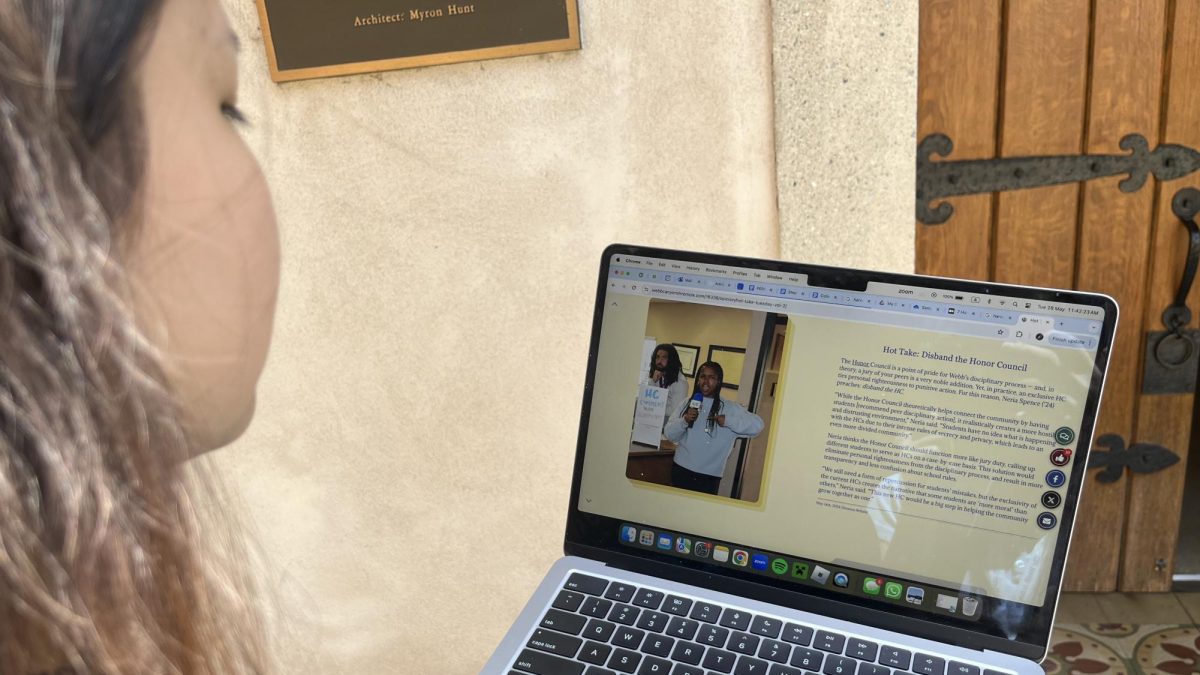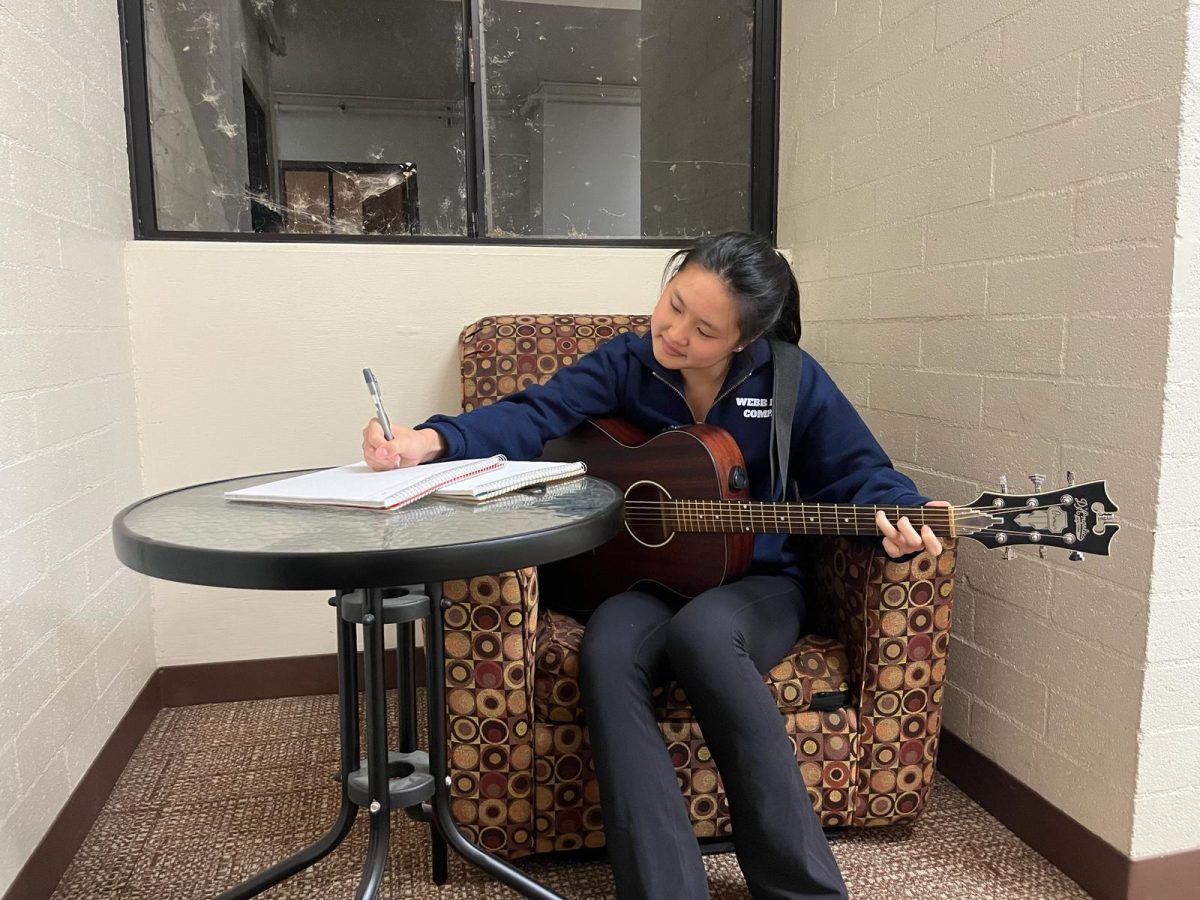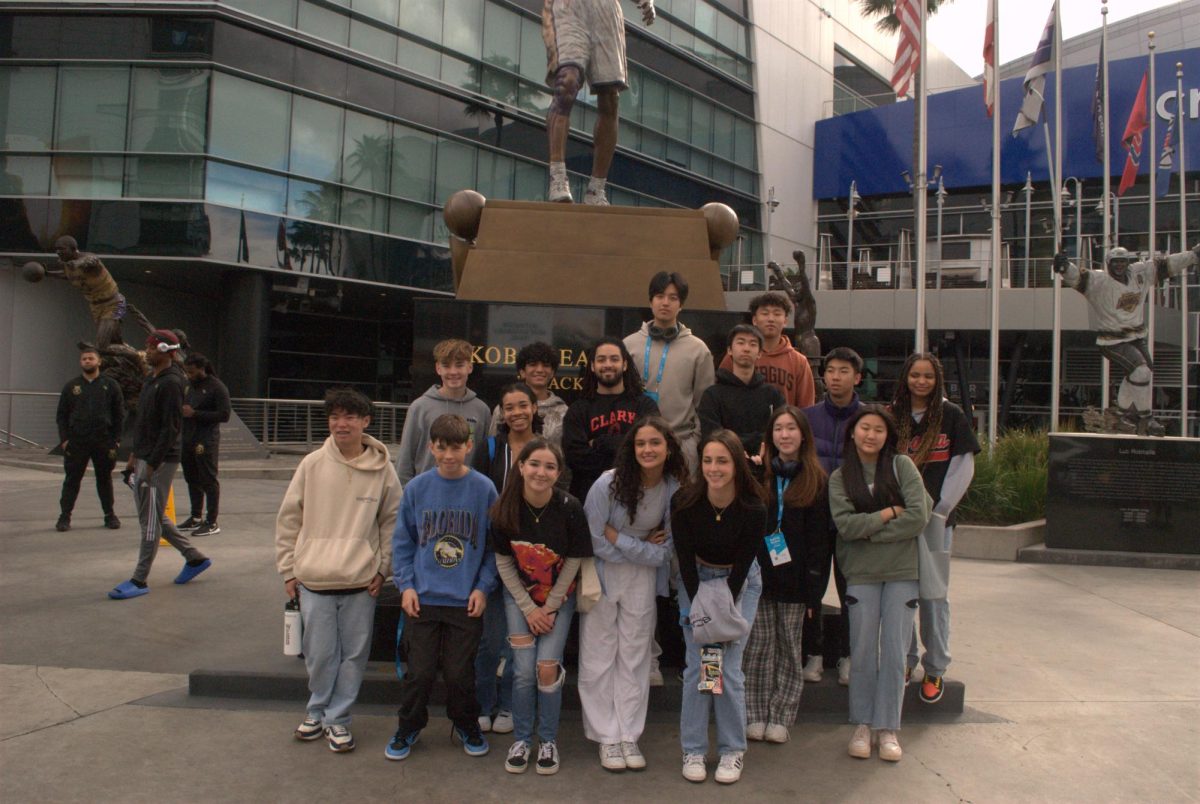As HCs, we believe in the importance of the honor council to Webb’s disciplinary process. Recognizing the legitimacy of Neria Spence’s (‘24) points in her Hot Take Tuesday, we would like to respond to them.
Neria mentions a personal righteousness that is tied to the exclusivity of the HC, instead arguing for a jury-like rotation of HC members comprised of all Webbies. Before diving into the reasons why the HC should not function as a jury rotation system, I would like to explain the role of the HC in the disciplinary process.
Whenever a student has violated a major or minor school rule, Sarah Lantz, Dean of Students, may choose for the case to come before the HC if she believes that the student can learn from the process. Not all cases come to the HC, but most do. Rather than serving as a jury, a body that decides whether someone has committed a crime, the HC is an advisory body to administration that focuses on growth. The HC is especially positioned for fostering growth with its formation of peers for reasons that are two-fold.
Firstly, it is much easier for students to communicate with their peers as opposed to with adults. When seeing that the HCs across the table are just peers or even friends they see every day on campus, students can rest assured that HCs understand their experiences.
Secondly, after a rule break, even a minor one, restoration is needed. As Webbies, we are expected to follow Webb’s rules, but if someone violates a rule, the action erodes the trust of others involved and the students who uphold the integrity of the community every day. Meeting with the HC helps students gain a wider perspective of their impacts from other students’ perspectives and learn how to restore trust, and the HCs are best suited to recommend restorative practices to the administration. Even owning up to their mistakes in front of their peer HCs is already a first step in owning up and restoring trust with other community members.
Although the emphasis has been on the significance of a peer HC, two other qualities are vital to the existence of a peer-led body: consistency and confidentiality.
Consistency:
As HCs, we engage in asking questions that help the student reflect and in recommending follow-up actions that balance the community, the student, and the rules. To ensure that a fair learning opportunity and consequence is given to each student, HCs need continuity in hearing cases. Currently, all HC members undergo forms of training and discussion that would guide our questions and recommendations; this training is beyond what a rotation jury could receive.
Confidentiality:
Without confidentiality, the HC cannot exist. At Webb, there is a saying that everything goes around in 30 minutes. Though this may be somewhat of an exaggeration, we believe in maintaining the privacy of each student, which is why all HCs sign confidentiality agreements right after being selected.
Even for juvenile courts, a prominent purpose is the confidentiality of the offender, which is why no jury sits for juvenile courts. A jury-HC system of random Webb students makes maintaining confidentiality difficult, leading to a distrust of this part of the disciplinary process. If students cannot fully trust the HC, they are unlikely to fully share their thoughts, harming the growth that is the goal of peer HC meetings.
We recognize that with the confidentiality we keep, the perception that the HCs are a secret society may follow, which is why this year we have engaged in efforts like HC office hours and will continue to work on having more outreach in the community next year.
This column is also a platform for greater transparency of the HC body. So, please give us your thoughts; we would love to hear them! Our wish is that community members can see HC members as community members first. We, after all, are just Webb students in the same classes, sports, dorms, and life situations that you are in.
















Eric Luo | May 29, 2024 at 11:35 PM
This article doesn’t address the hot take’s main points, which are that the HC makes some students morally superior than others and ties personal righteousness to justice.
In fact, the article is a great example of why the HC suggests that some students are morally superior to the rest. It basically says that Webb students can’t be trusted to act with moral courage or be confidential.
The argument on consistency is decent, but more evidence is needed to explain why the “training” is beyond what a rotational jury could understand.
There are also other arguments against the HC to be made here.
The HC is always going to be made up of solely upperclassmen with good academic standing, which is not representative of the school as a whole. This is especially problematic since many of those who get HCs are the opposite.
Students who are good at interviews and making themselves look honorable aren’t necessarily actually honorable. Politicians are a great example of that.
Juries will create more trust and understanding of the honor code than an exclusive HC. As more people get to serve, more will understand the system and how it works. No amount of bluster about honor, trust, and community will beat actual engagement with justice.